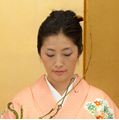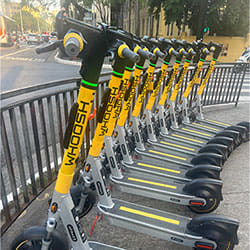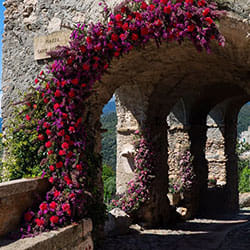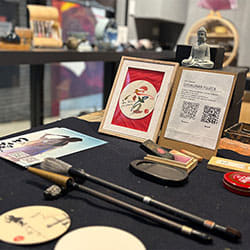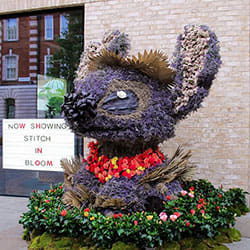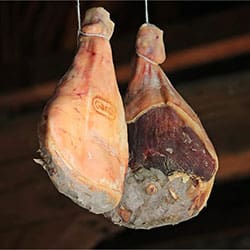So, this is the time to dress up in colorful clothes for Carnival and blow away the blues. Choosing or making your own costume according to the predetermined theme for the year and sharing fun times together at Carnival with friends is not only a huge event for this time of the year, but a source of energy and vitality.
Carnival in Germany has mainly been held in predominantly Catholic areas such as Rhineland and Bavaria. Carnival in Cologne and Dusseldorf is particularly well known, but parades are held in various places, so they are well loved everywhere as events that bring the community together.
Just seeing the various costumes in the shops is exciting



The weather in the week of Carnival (Thursday to Tuesday with the final ceremony on Wednesday) is sometimes not very good, with temperatures close to freezing and a sprinkling of rain or snow.
Nevertheless, wearing a cartoon-character costume, keeping the cold out, painting your face, wearing a mask, or looking like a pirate and launching yourself into Carnival in a showy outfit really distracts you from the cold and the winter blues, and in a sense could be described as bravery.
The first day of Carnival is called Weiberfastnacht (Fat Thursday). Women can seize the initiative on this day, storm government offices with their scissors and cut off the men’s neckties.
Then children’s parades and parties in grown-up costume are held on successive days all over.
The main event of Carnival is no less than Rosenmontag (Rose Monday). Lots of the parade participants throw flowers or candy among the spectators while calling out “Alaaf!” in Cologne, or “Helau!” in Dusseldorf.
This year I went to a Carnival parade in a small town. The parade floats were all built around tractors with wheels the size of an adult, the children coming together with great joy to gather candy and forget about the cold. There were even some farmers giving out onions from their truck.

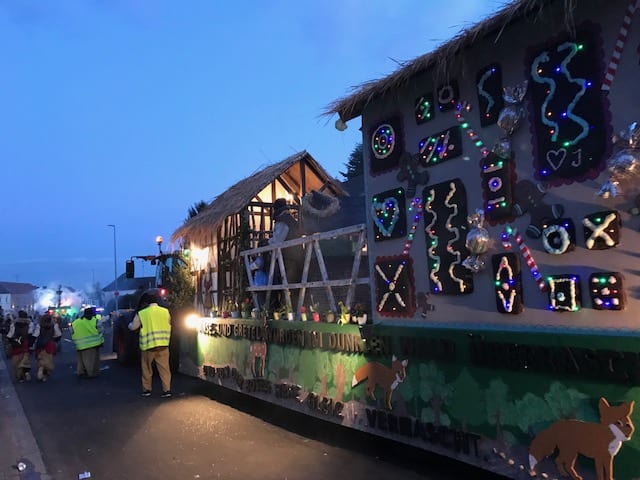

A float towards the back of the parade for the younger folks was equipped with big woofers, and made for a lovely, and quite loud, Elsa and Olaf costume party.
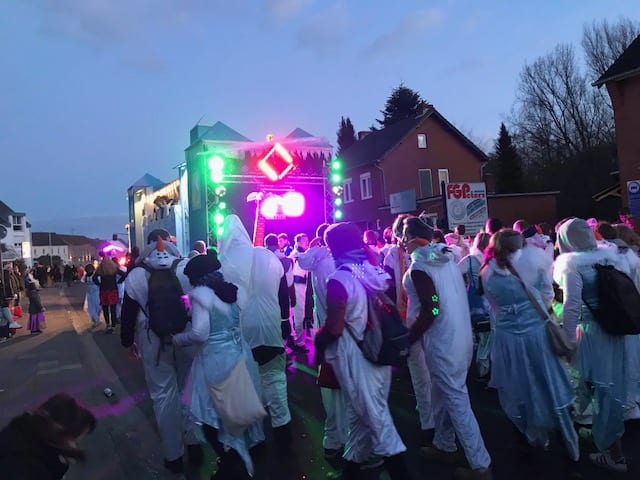
A joy-filled catch of candy
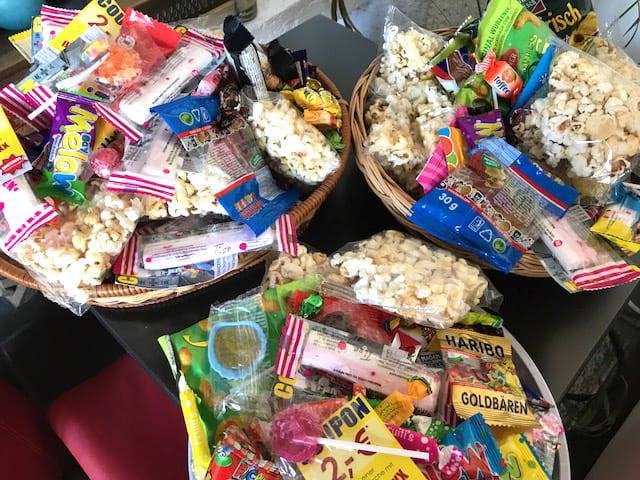
The final day of the parades is called Veilchendienstag (Violet Tuesday, Shrove Tuesday) or Fastnacht.
Then the Carnival ends on Aschermittwoch (Ash Wednesday).
In Dusseldorf, the Hoppeditz funeral ceremony is held, with a cremation and ashes. In Christianity, the 40-days to Easter involve the custom of not eating meat, to remember Christ’s fast.
These days there are people who, even though not believers, don’t drink alcohol or eat candy during this time, in anticipation of the coming of spring (Easter).









